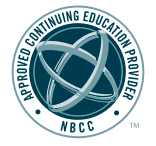A Resource for Healthcare and Social Services Professionals
April 13, 2022
11:30 am–1:00 pm ET
This 1.5 hour session, titled "Combining Contingency Management and Opioid Treatment Programs" will cover contingency management as an evidence-based treatment strategy to care for people with SUD.
Via Zoom
Grayken TTA and Spectrum Health Systems, Inc. are partnering to provide a series on addiction treatment in the Opioid Treatment Program (OTP) setting. This series will have five sessions covering a variety of topics that are offered twice.
This 1.5 hour session, titled "Combining Contingency Management and Opioid Treatment Programs" will cover contingency management as an evidence-based treatment strategy to care for people with SUD.
This training will be held via Zoom. We would prefer that you log in using a computer with a web cam so that we can all connect to each other via video. Please note that signing on with video is required to receive CEs. If you do not have access to a web cam, please let us know.
OTP and OBAT staff providing treatment for substance use disorders in Massachusetts
Sara Becker, Ph.D., is a licensed clinical psychologist and Associate Professor at the Brown University School of Public Health. Dr. Becker's work aims to increase the uptake of effective addiction treatment and recovery services in front-line community settings. She is currently the Director of the New England Addiction Technology Center, which trains over 2,100 front-line addiction treatment providers each year. She is currently leading an initiative called Project MIMIC, which is partnering with 30 opioid treatment programs to help them implement contingency management, and she serves as a strategic advisor to the state of California on their statewide rollout of contingency management.
Carla J. Rash, Ph.D.Carla Rash, Ph.D., is an associate professor of medicine in the Calhoun Cardiology Center, Behavioral Cardiovascular Prevention Division, and Department of Medicine at UConn Health. Her research interests focus on understanding and minimizing relapse in addictions, including the use of contingency management interventions. Her work is funded by NIH, RWJF, and SAMHSA.
Participants will be able to identify contingency management as an evidence-based treatment strategy to care for people with SUD.
Participants will be able to recall at least two important pillars of an effective contingency management program.
Participants will be able to describe at least two types of evidence-based contingency management strategies that are effective in the care of people with SUD.
Bureau of Substance Addiction Services
Boston Medical Center grants 1.50 hours to all nurses who attend and complete the evaluation. Boston Medical Center is approved as a provider of continuing professional development by the American Nurses Association, Massachusetts, an accredited approver by the American Nurses Credentialing Center’s Commission on Accreditation.
Boston University School of Medicine designates this live activity for a maximum of 1.50 AMA PRA Category 1 Credit(s)™. Physicians should claim only the credit commensurate with the extent of their participation in the activity.
The lecture has been approved by The Network of Professional Education at Boston University School of Social Work, accredited by the Commonwealth of Massachusetts Board of Social Work Registration, to provide 1.50 credit hours.

BMC Grayken Center of Addiction TTA has been approved by NBCC as an Approved Continuing Education Provider, ACEP No. 7188. Programs that do not qualify for NBCC credit are clearly identified. BMC Grayken Center of Addiction TTA is solely responsible for all aspects of the programs. For this program, 1.50 contact hours will be offered to participants who attend the training and complete the evaluation.